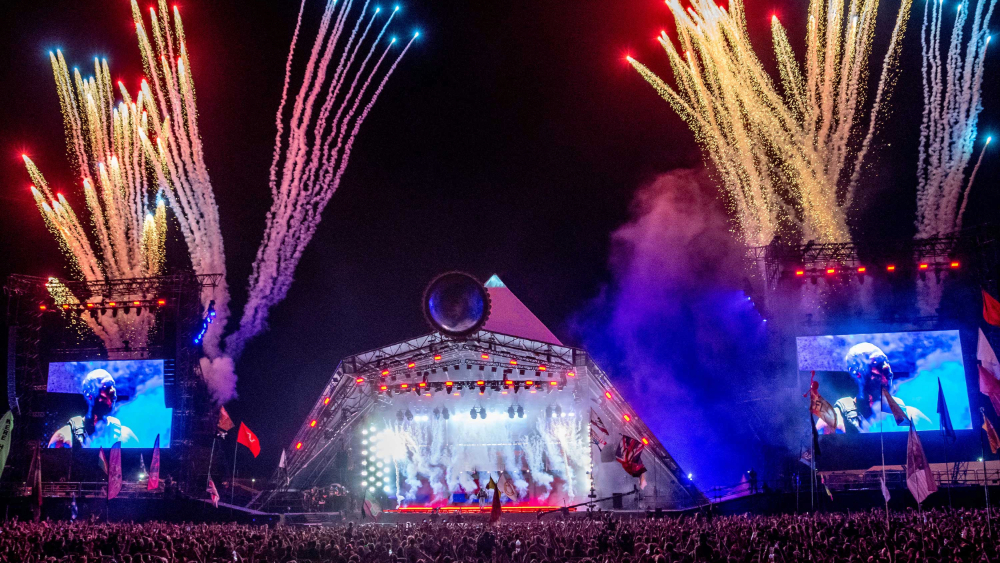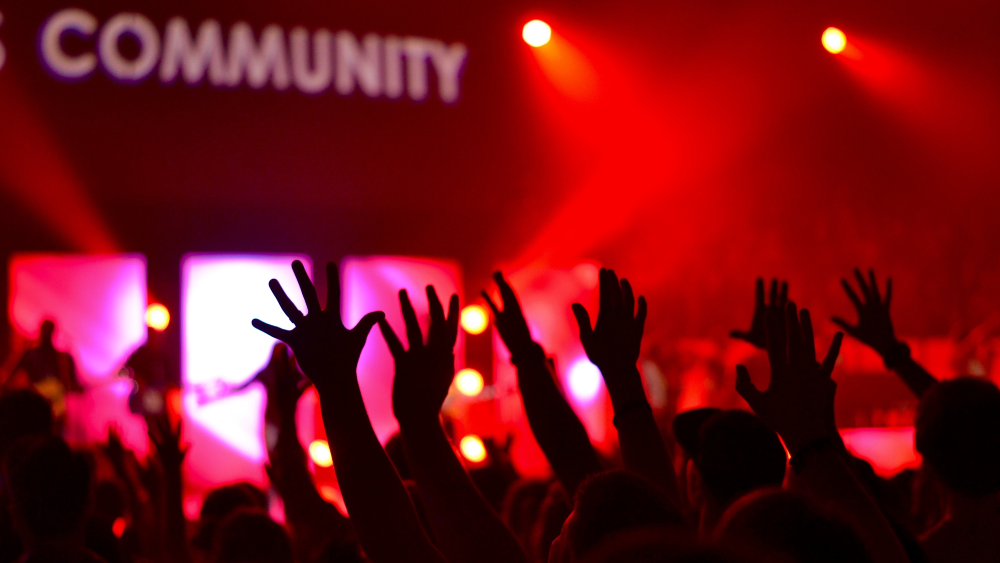Last week saw the launch of the Music Fans’ Voice survey, giving music lovers across the UK the opportunity to have their say about the state of live and electronic music in this country.
Commissioned by a number of local government authorities and figures — including Greater Manchester Combined Authority, The Mayor of London, Liverpool City Region Combined Authority, West Midlands Combined Authority, Tees Valley Combined Authority, Cardiff City Council, Belfast City Council and Glasgow Music City — the survey is aiming to proactively build on the recent recommendation from the Culture, Media and Sport (CMS) select committee for a fan-led government review of music.
'We've tried our best across various rounds of feedback to cover everything within the scope of live and electronic music [in the survey] as per the recommendations of the CMS committee,’ Sam Duckworth (AKA recording artist Get Cape. Wear Cape. Fly, who also leads Music Venue Trust’s Audience Engagement and Strategy) tells M. ‘That ranges from: what do you think about gigs? How do you find out about them? How do you get there? What do you do when you're there? How do you feel when you're there? How do you get home? What would you like to see in the future? We’d like respondents to think about every element of the process, from waking up one day and going, "Oh, I wonder what gigs are on?" to the day after the gig when you wake up and go, "That was great". Everything in that journey is covered.'
Pitched to respondents as ‘15 minutes to shape the future of live music’, the survey is aiming to produce findings that will give music fans ‘a data-driven seat at the table’ when it comes to informing decision making in government, the music industry and regions across the UK about live music.
M caught up with Sam to find out more about the significance of the Music Fans’ Voice survey, which is open throughout this month.
Why should people take part in this survey?
'Because the answers to a lot of these questions aren't readily available. I think that we are a sector that just wouldn't really exist without the fan base: people buy records, come to shows, buy merch. With every element of the industry, our primary stakeholder should be our audience. I’ve been an artist for 20 years, and fans have come up to me for years and said, "I think this — how can I get my voice across? I'd love to be able to help". On the other side of the fence, there's lots of conversations where the industry talks about what the fans think. It's therefore time to actually hear what the fans think and put some kind of quantifiable data in the middle of those conversations. That's not to stir anything up, but to actually give reassurance.
'We're an industry that is vital not just to the UK economy, but also the cultural economy and the perception of the UK. It would be great to hear what music means to fans and what it means to the world in terms of the UK's reputation. There are some real solid questions that we fly the flag for [in this survey], and now’s the time to have that reassurance and that backing from our primary stakeholder: the fans.’
'We're an industry that is vital not just to the UK economy, but also the cultural economy and the perception of the UK.'
A host of local authorities and regional mayors, including Sadiq Khan and Andy Burnham, jointly commissioned this survey. How important is it that this survey is truly representative of the UK?
‘Those local authorities are all working together to deliver this, and they'll be working together afterwards to make sure that the output shapes policy in their regions. They’re people who care about protecting and enhancing their regions, be it through growing opportunities and jobs or making sure the things that people love are more accessible and equitable. They can also work together as a network of metropolitan and devolved authorities, comparing and spotting what works and what doesn't. Is there anything else they can do? Is there something else they need to research? Working together with us, a kind of de facto loose collaboration of people from across the music industry, there's an independence to this.
‘The local authorities will own the data, but they want it to be [publicly] available so people can use it for their betterment. It’s providing really important information in a cost-effective manner: if each individual authority tried to do this study themselves it would be completely unaffordable, but everybody collaborating means it is affordable. It's the same with the music industry: if a single organisation tried to push this [survey] it'd only have a certain reach, but everybody working together creates a cost-effective data commons that enshrines the most important part of the sector, the fans. For politicians, their most important stakeholder is their constituent — so for their cultural teams, the most important people are fans of music and culture. It allows us as a collective to put the people that matter the most first.’
What would you like to see happen next as a result of the Music Fans Voice survey?
‘What I want is a greater relationship between the music industry and the audience. I'm a fan first and an artist second: I'll never stop being both. Everybody that works within the music industry should also consider themselves to be a fan so that we're not just looking at this as [purely] a customer relationship. The industry is like an ecosystem, [encompassing] everyone from artists, promoters, agents, record labels and publishers, and it needs collaborative projects like this that give us an insight into our relationship with our audience. Of course, the likes of UK Music and other stakeholder bodies who represent the industry when meeting government do a great job, but there is a missing seat at the table: the people that contribute that £7bn+ GVA [Gross Value Added] to the UK economy every year.
‘The more we can do as an industry to enhance our relationship with our audience, the faster we'll move to a better destination for everybody. Industries that put their fans or customers first always thrive. Going through past data and looking at how certain areas of our statistical analysis work across the sector, there's a seat missing. So whether it's through a regular commitment to do things like [this survey] or follow up with focus groups to have a more consumer-focused approach, my desire is to just make sure that we don't take for granted the people that make the cogs turn.’
You said you’re a music fan first and an artist second. Why should musicians also take part in this survey?
'15 minutes is a relatively long time in a digital attention economy, so there has to be trust there. Hopefully, the people who take part trust that their views will be represented. It’s about us looking at [musicians] differently: we understand that you do [music] for a job, but when you say you love your job, that makes you an equal to all the people that love you for doing your job. It's a wonderful thing.
'I suppose the pitch to artists and people in the industry is: if you consider yourself a fan and fans are filling this survey but you don't, then come on, what are you doing here? Join this opportunity to really express yourself and your views. As a recording artist myself, it’s abundantly clear that the vast majority of people I encounter are music fans. So, I'd say to other artists, please fill this in: it is for you too. This is not purely consumer research, it's wide-ranging: everybody's allowed to be involved.’
'Industries that put their fans or customers first always thrive.'
What should people look out for next in terms of supporting live music in the UK?
‘There will be a lot of results from the survey and a lot of opportunities to really understand what everybody thinks and is approaching things. We'd also like people to think outside the box and drop us an email: this growing, open source-connected thinking needs fresh ideas, new motivations and new inputs. I'm a 39-year-old from Southend on Sea, and I started playing guitar and travelling around on trains [to play live] well over 20 years ago. My life has been blessed because I just subscribed to this idea that if you want to do something, you’ve got to give it a go.
‘We're fortunate that there's this overwhelming support within the industry for ideas like this: it’s taken 14 months to get to this point, but so many people have backed this survey. Along that road there have been lots of people that have shared their time, resource and experience to make it happen, and there's a whole collective of people working to make it as effective as possible, supported by some incredible teams of music fans within the combined authorities and city region governments.
'There are so many different organisations out there [to join], but if people feel that something is missing, then find others who you can build it with or get in touch with [the Music Venue Trust]: we'll help you collide into other people that might feel similar. Culture is an amazing thing because it's rapidly evolving, and every so often something might just come along that changes everything. The opportunity and the onus to be a part of that process is completely on the creator.'
You can find out more and take part in the Music Fans Voice survey by heading here.





